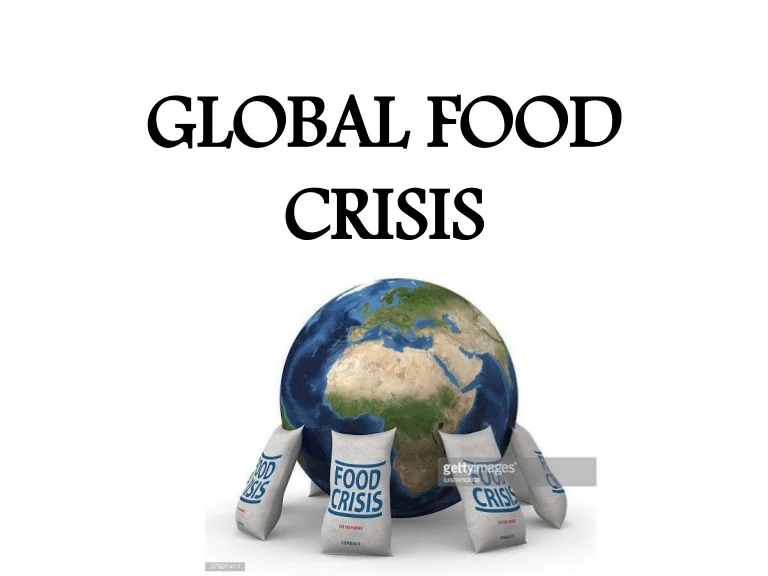The recent Food Security report released by the World Bank has painted a grim picture of the impending crisis of food security in several states across Nigeria’s northwestern and northeast regions. The report has highlighted the deteriorating standards of living in these areas, attributing the crisis to ongoing insecurity and armed conflicts.
According to the report, Borno, Adamawa, Kaduna, Katsina, Yobe, Sokoto, and Zamfara states are most at risk of facing severe food insecurity in 2024. This alarming projection demands immediate attention and decisive action from the Nigerian government and the governors of the affected states.
The report’s findings underscore the urgent need for a comprehensive and coordinated response to address the root causes of food insecurity in the region. Insecurity and armed conflicts have disrupted agricultural activities, displaced communities, and hindered access to food and essential resources. As a result, vulnerable populations are facing the risk of hunger, malnutrition, and poverty, exacerbating an already dire situation.
The federal government, in collaboration with the governors of the affected states, must prioritise and implement immediate interventions to mitigate the impending food crisis. It is imperative to address the underlying factors contributing to food insecurity, including conflict resolution, sustainable agricultural development, and the provision of humanitarian assistance to affected communities. Furthermore, efforts should be made to enhance the resilience of local food systems and build capacity for long-term food security.
Insecurity: FG installs E-verification gate at Abuja airport
‘You’ll be punished’, FG threatens civil servants leaking sensitive documents
In light of the report’s findings, the Nigerian government and the governors of the affected states must take the following decisive actions:
Efforts should be intensified to address the root causes of insecurity and armed conflicts in the affected regions. This includes enhancing security operations, promoting dialogue and peace-building initiatives, and addressing the grievances of marginalized communities.
Comprehensive support should be provided to smallholder farmers and agricultural communities to revitalise agricultural production and improve food supply chains. This may involve providing access to inputs, training, and technology, as well as investing in irrigation and infrastructure to enhance agricultural productivity.
Immediate humanitarian aid should be mobilised to provide food, nutrition, and essential services to vulnerable populations affected by the crisis. This includes ensuring access to clean water, healthcare, and livelihood support for displaced and food-insecure communities.
The federal government, in partnership with relevant stakeholders, should foster collaboration and coordination to ensure a coherent and effective response to the looming food crisis. This involves working with international organizations, civil society, and local communities to leverage resources and expertise in addressing food insecurity.
Sustainable strategies should be adopted to build the resilience of communities and food systems against future shocks and crises. This may involve promoting diversified livelihoods, climate-smart agriculture, and social protection programs to safeguard vulnerable populations.
The World Bank’s report serves as a stark reminder of the urgent need for decisive action to avert a humanitarian catastrophe in Nigeria’s northwest and northeast regions. The federal government and the governors of the affected states must prioritise the welfare of their citizens and demonstrate strong leadership in addressing the complex challenges of food insecurity. By taking immediate and concerted action, Nigeria can mitigate the impending crisis, protect the most vulnerable, and build a more resilient and food-secure future for its people.
The Nigerian government and the governors of the affected states must allocate adequate resources and demonstrate unwavering commitment to implementing the proposed interventions. This includes mobilizing funding for emergency food assistance, agricultural development programs, and conflict resolution initiatives. Additionally, transparency, accountability, and effective governance will be essential in ensuring that resources are utilized efficiently and reach those most in need.
Furthermore, international support and collaboration will be crucial in complementing the efforts of the Nigerian government and local authorities. The international community, including donor organizations and humanitarian agencies, should stand ready to provide technical expertise, financial assistance, and capacity-building support to bolster Nigeria’s response to the impending food crisis.
In addition to the immediate interventions, a long-term vision for sustainable development and food security in the region must be pursued. This involves addressing the underlying structural challenges, such as poverty, inequality, and environmental degradation, which perpetuate food insecurity. By investing in education, healthcare, infrastructure, and economic opportunities, Nigeria can lay the groundwork for a more prosperous and food-secure future for its citizens.
The governors of the affected states play a critical role in spearheading localized efforts to address food insecurity within their respective regions. They should work in close collaboration with relevant government agencies, community leaders, and civil society organizations to develop context-specific interventions that prioritize the needs of local communities. By engaging with and empowering local stakeholders, governors can ensure that the response to food insecurity is inclusive, responsive, and sustainable.
Moreover, the federal government needs to engage in proactive dialogue with neighbouring countries, such as Burkina Faso, Chad, and Niger, to address the regional dimensions of food insecurity. Given the interconnected nature of the challenges facing West Africa, a coordinated regional approach will be instrumental in addressing common issues and fostering stability and prosperity in the sub-region.
The World Bank’s sobering projection of impending food insecurity in Nigeria’s Northwest and Northeast regions demands urgent and concerted action. The federal and state governments of the affected states must rise to the occasion and prioritize the welfare of their citizens by implementing decisive interventions to address the root causes of food insecurity. By fostering collaboration, mobilizing resources, and demonstrating strong leadership, Nigeria can avert a humanitarian catastrophe and pave the way for a more resilient and food-secure future for its people.
Ja’afaru PhD is a Social Development Specialist, he resides in Abuja

 Join Daily Trust WhatsApp Community For Quick Access To News and Happenings Around You.
Join Daily Trust WhatsApp Community For Quick Access To News and Happenings Around You.


